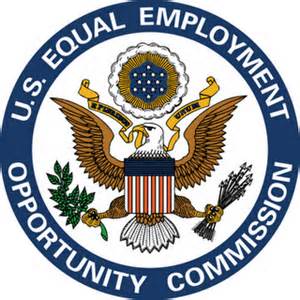In Maglio v. Advocate Health and Hosps. Corp., (Ill. App. Ct. June 2, 2015), the Illinois Appellate Court was asked to decide whether individuals have standing to bring suit for violations of consumer data protection laws where their personal data, while compromised, has not been used to harm the individuals.  The Illinois Appellate Court, in holding that such individuals do not have standing, established that, at least in Illinois, plaintiffs who suffer no concrete harm, but instead allege only technical statutory violations, cannot sue for violations of consumer and, presumably, workplace-related laws.
The Illinois Appellate Court, in holding that such individuals do not have standing, established that, at least in Illinois, plaintiffs who suffer no concrete harm, but instead allege only technical statutory violations, cannot sue for violations of consumer and, presumably, workplace-related laws.
The decision of the Illinois Appellate Court could have implications beyond Illinois. As we previously reported, the U.S. Supreme Court recently granted certiorari in Spokeo, Inc. v. Robins (U.S. Apr. 27, 2015). In the Spokeo matter, the U.S. Supreme Court will confront a nearly identical issue: Do individuals have standing to sue for violations of the Fair Credit Reporting Act (FCRA) even when they have not suffered any harm or injury? If the U.S. Supreme Court reasons in the same way that the Illinois Appellate Court did and answers this question “no,” the decision would likely discourage the current wave of consumer, workplace, and other class actions seeking millions in statutory damages.
Case Background
Advocate is a network of hospitals and doctors. On July 15, 2013, burglars stole four computers from Advocate’s administrative building that contained the personal information of about four million of Advocate’s patients. Advocate notified these patients of the theft on August 23, 2013.
Two sets of plaintiffs filed class actions against Advocate, claiming that Advocate violated two state consumer data protection laws by failing to maintain adequate procedures to protect the personal information of plaintiffs and putative class members and by failing to notify the plaintiffs and putative class about the breach in a timely matter. The plaintiffs also sued Advocate on theories of negligence and invasion of privacy.
Advocate moved to dismiss both class actions, arguing that the plaintiffs lacked standing because they had not suffered any injury as a result of their data being stolen. Both trial courts dismissed the class actions. The trial courts found that “[t]he increased risk that plaintiffs will be identity theft victims at some indeterminate point in the future . . . . did not constitute an injury sufficient to confer standing,” and that the plaintiffs’ “allegations concerning anxiety and emotional distress . . . . were insufficient to establish standing, where they were not based on an imminent threat.” The plaintiffs appealed.
Appellate Court’s Decision
The Appellate Court pointed out that, under Illinois law, a plaintiff only has standing if he or she has suffered “some injury in fact to a legally cognizable interest. [T]he claimed injury may be actual or threatened and it must be: (1) distinct and palpable; (2) fairly traceable to the defendant’s actions; and (3) substantially likely to be prevented or redressed by the grant of the requested relief.”
The Appellate Court then considered whether the plaintiffs had suffered a “distinct and palpable” injury under Illinois law. It found, in light of Chicago Teachers Union, Local 1 v. Bd. of Educ., – a case in which the Illinois Supreme Court held that physical education teachers did not have standing to challenge a statute allowing school districts to waive mandatory physical education requirements because the teachers were not “in immediate danger of sustaining a direct injury as a result of enforcement of the challenged statute that is distinct and palpable” – that the plaintiffs’ allegations of injury were speculative and the plaintiffs thus did not have standing to bring suit.
The Appellate Court reasoned that this result was supported by federal case law on standing. It observed that, “[i]n federal courts, to show standing under Article III of the Constitution, a plaintiff must establish the existence of an injury that is: (1) concrete, particularized, and actual or imminent; (2) fairly traceable to the challenged action; and (3) redressable by a favorable ruling.” To meet the first requirement, “an ‘allegation of future injury may suffice if the threatened injury is ‘certainly impending,’ or there is a ‘substantial risk’ that the harm will occur.” (quoting Susan B. Anthony List v. Driehaus, 2014). “Allegations of possible future injury are not sufficient,” nor is an “objectively-reasonable-likelihood” that the future injury will occur.
The Appellate Court went on to find that an increased risk of harm is not sufficient to confer standing. While agreeing that the Seventh Circuit appears to have held that an increased risk of harm can confer standing in Posciotta v. Old Nat’l Bank Corp., it found that the later-decided Clapper case compelled rejection of this position. (Citing Strautins v. Trustwave Holdings, Inc., (N.D. Ill. 2014).
Finally, the Appellate Court found that alleged “appreciable emotional injury” did not confer standing on the plaintiffs. Specifically, the Appellate Court found that, because the purported emotional injury did not flow from an “imminent, certainly impending, or substantial risk of harm,” it could not, on its own, confer standing.
Implications for Employers
This case is welcome news for Illinois employers, who can use this case to defeat consumer and workplace class actions based on technical violations of state laws without any resulting harm to consumers or employees. Outside of Illinois, if the U.S. Supreme Court interprets federal standing requirements as the Illinois Appellate Court did, employers could be handed a significant win in the Spokeomatter. If Spokeo is decided as Maglio, employers nationally should have a powerful tool to achieve dismissal of class action lawsuits based on technical violations of both federal and state consumer and worker protection laws. Stay tuned.
This column previously appeared on the Seyfarth Shaw LLP website.



